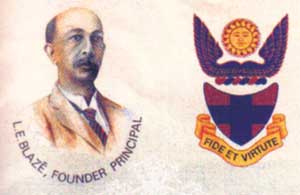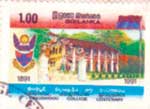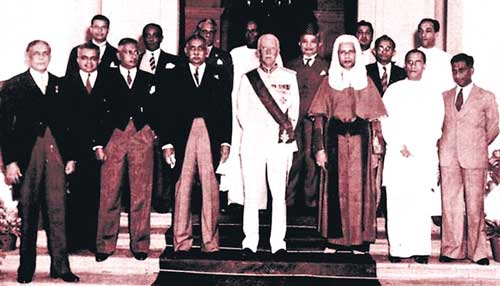First school to play rugger
It was 116 years ago this week that a leading school in Kandy, Kingswood College was established. The exact date is May 4, 1891. The well known Sri Lankan writer, poet and educationist Louis Edmund ( L. E.) Blaze (1861-1951) was the founder. The school, founded under the name of Boys' High School, Kandy had the unique distinction of being the first school in Sri Lanka (then Ceylon) where the founder was also the first principal.
During its formative years, the school was housed in a small building in Pavilion Street, Kandy with eleven students on the roll. In 1895 it moved to a new home in Brownrigg Street where it remained until 1925 when it moved into more spacious premises in Solomons Gardens, Peradeniya - the present location. The school was named Kingswood taking the name of a school by the same name in Bath, England.
Kingswood's founder always emphasized that character training should be the first duty of any school.
Kingswood created local history by scoring several 'firsts.' It was the first school in the country to play rugger. It was the first boys' school to employ a woman teacher. It was also the first school that utilized students to control road traffic.
Sir John Randles, a British philanthropist who donated lavishly towards the construction of the new buildings at Peradeniya, came to Sri Lanka to open the buildings personally. That was on February 3, 1925.
Worthy traditions built up over the years have been admirably nurtured by several generations of parents, teachers and students. |



